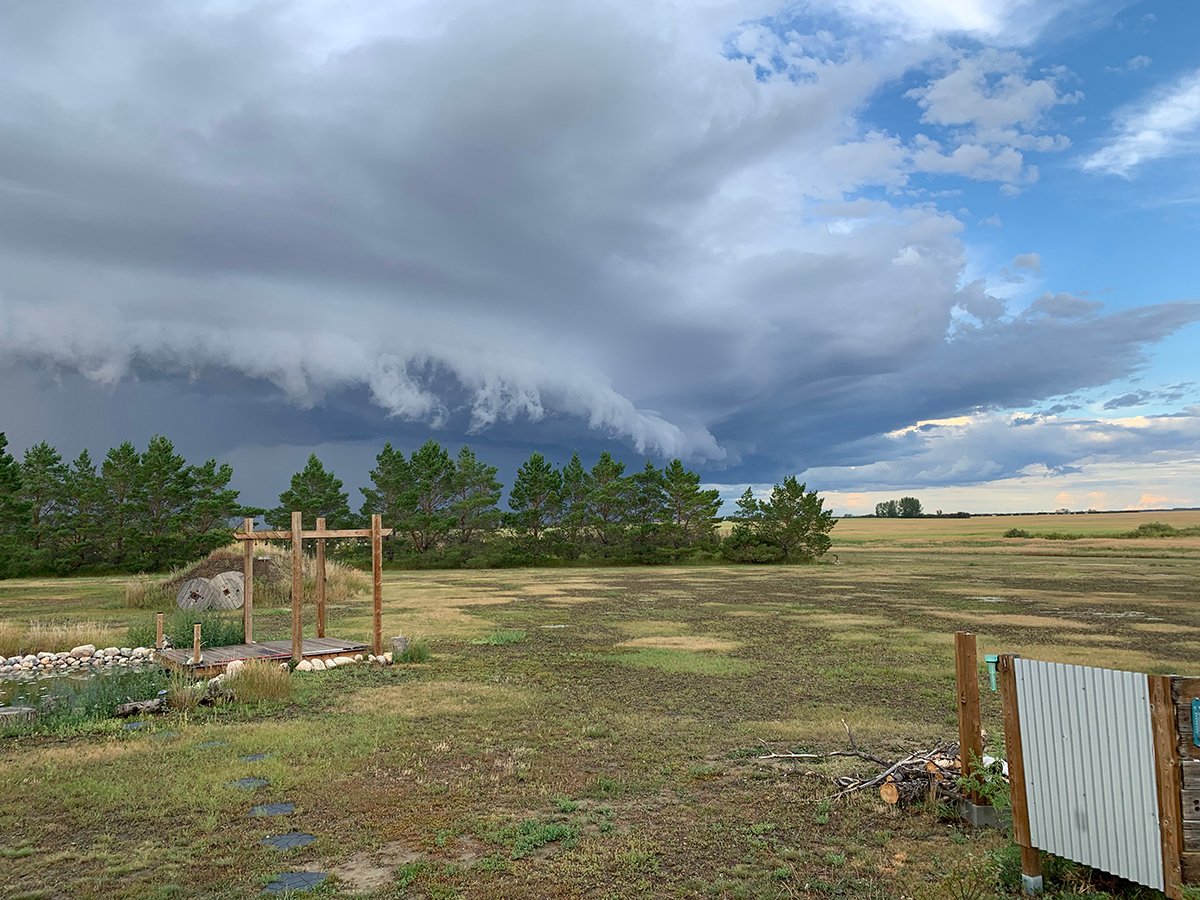Gift will support poultry research
The University of Guelph has received $3.5 million from the William and Lynne Gray Foundation and L.H. Gray & Son Ltd. to improve innovation and sustainability in the Canadian poultry and egg sector.
The gift will create the Bill and Lynne Gray Chair in Advanced Poultry Technology Management in the Ontario Agricultural College’s Department of Animal Biosciences and help advance technologies and systems that are key to sustainable and profitable production.
The chair will also work closely with faculty in the School of Engineering on environmental control issues such as lighting, ventilation, sanitation and biosecurity, using new and emerging technologies to help control the spread of avian diseases.
Read Also

Storm dynamics and extreme rainfall
Besides moisture, instability and orographic lift, the next biggest factor that contributes to heavy or extreme rainfall is storm dynamics.
Vet of the year named
Dr. Nathan Erickson of the University of Saskatchewan’s Western College of Veterinary Medicine in Saskatchewan is the winner of this year’s Veterinarian of the Year Award, presented by the Western Canadian Association of Bovine Practitioners and Boehringer Ingelheim Canada.
He is associate professor in the vet college’s Department of Large Animal Clinical Sciences.
He has experience as a cattle owner and previously worked in a beef cattle consulting practice.
His research interests mainly focus on the efficient use of available products and management techniques to maximize the production of herds in a sustainable manner. He has done in-depth investigation into calfhood vaccination protocols with an interest in how to optimize calf immunity.
4-Hers move to national science fair
4-H Canada Science Fair finalists Mark Norregaard of Balzac, Alta., and Nia Smith from Brandon will be competing in the 2024 Canada-Wide Science Fair.
This is 17-year-old Norregaard’s fifth time as a finalist. He focused on comparing the response between vaccinated and non-vaccinated calves prior to grass and weaning time. His project was inspired by the desire to help decrease outbreaks of bovine respiratory disease in calf populations.
This was 14-year-old Smith’s first time at the 4-H Canada Science Fair.
Her project aims to improve the success of home hydroponic systems. It compared four different mediums for starting seeds and provided findings on which medium works best for a hydroponic system to achieve the highest germination rate.
Beef producers offered CRSB incentive
The Canadian Roundtable for Sustainable Beef is again offering an incentive for beef producers to maintain their CRSB certification.
Working with Cargill and its customers — Centennial Food Solutions, Gordon Food Service, Intercity Packers, MacGregors Meat & Seafood, McDonald’s Canada, Metro, Recipe Unlimited and Walmart – the roundtable will provide up to $400 to producers who have made the upfront investment of becoming CRSB Certified but did not receive at least $400 in financial return for qualifying cattle processed in 2023 as part of the existing Qualifying Cattle Credits.
The Certification Recognition Credit will be issued over and above the existing Qualifying Cattle Credits paid by Cargill to beef producers for qualifying cattle processed in 2023.
This incremental payment will ensure all CRSB Certified operations who became or maintained their CRSB Certified status through 2023 and into 2024 will receive a minimum $400 in total annual credit payments as part of the CRSB Certified Sustainable Beef Framework.
The credit will only apply to those operations who have not already received at least $400 in Qualifying Cattle Credits.
The credit will be paid to CRSB Certified operations regardless of whether their qualifying cattle were ultimately sold to Cargill.
Qualifying operations do not need to apply separately for this credit and can expect their payment this month.
Provided that the operation maintains an active certification status at the start of 2024, the operation is eligible to receive a Certification Recognition Credit based on the difference between $400 and the amount that the operation earned via Cargill’s Qualifying Cattle Credit for all qualifying cattle processed in 2023.
Beef genomic research funded
The Canadian Angus Association will receive $3.8 million in funding to increase Canadian cattle producers’ ability to make data-driven decisions based on genomics to economically benefit their commercial livestock operations.
The funding will be used to develop a genetic selection tool to equip producers with breeding data to select the best replacement heifers to improve their herds.
Using the selection tool, producers will have access to reliable genetic data to select for desired traits such as growth and fertility.
Alberta’s Results Driven Agriculture Research facilitated a contribution of $978,000 through the Sustainable Canadian Agricultural Partnership, funded by the governments of Alberta and Canada. The Canadian Angus and Hereford associations, together with TELUS Agriculture, also contributed.
UFA sponsors start-up incubator
UFA Co-operative Ltd. will sponsor the University of Saskatchewan’s Opus pre-accelerator program.
The start-up incubator provides aspiring entrepreneurs with the tools needed to build successful ventures on campus.
The collaboration is expected to benefit UFA and its member-owners by offering access to key innovators in Saskatchewan and a pipeline to regional startups.














